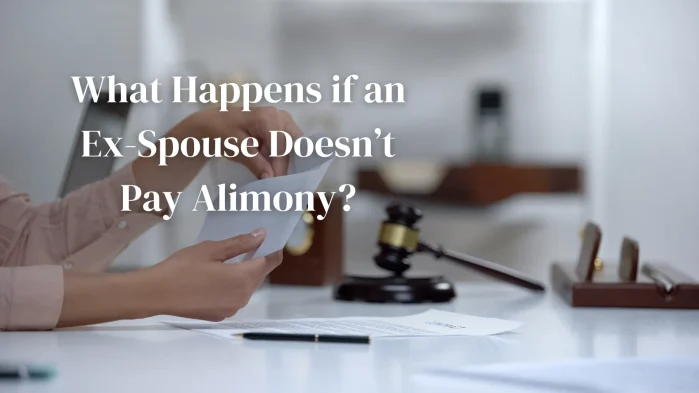
Divorce often ends the relationship, but it does not always end financial obligations. Many divorce decrees include alimony, also known as spousal support, to help one spouse maintain financial stability. Unfortunately, some ex-spouses refuse to pay the amount ordered by the court. If this happens, New Jersey law provides unpaid alimony enforcement options that can protect your financial rights.
Alimony Obligations Under New Jersey Law
Alimony is intended to alleviate the financial burden of divorce. When one spouse earns more, support helps the other adjust to life after the marriage ends. Once the court includes alimony in the divorce decree, it becomes a binding order that must be followed, and unpaid alimony enforcement may be necessary if those payments are not made.
If your ex fails to pay, missed support – known as arrears – can accumulate quickly. Falling behind creates financial pressure, making it more challenging to cover housing, childcare, and other essential needs. It also violates a court order, which means the court can step in and enforce payment through legal remedies.
Filing an Enforcement Motion
The process starts when you file a motion in family court. This lets the judge know your ex isn’t following the divorce order. You can present proof and request remedies, such as wage garnishment or contempt. Acting quickly helps keep support from piling up.
Common enforcement remedies include:
- Income Withholding Orders and Wage Garnishment – The court can order your ex’s employer to take alimony payments directly from their paycheck. This removes the uncertainty of waiting for voluntary payments. According to New Jersey courts, income withholding is often the first step in collecting unpaid alimony.
- Contempt of Court – If your ex ignores the divorce order, the judge can hold them in contempt. This may result in fines, repayment, or even imprisonment. Judges use this carefully, but it helps enforce court orders.
- Seizure of Assets and License Suspension – The court can collect money by seizing funds from bank accounts, placing a lien on property, or utilizing other assets as permitted by law. Another option is to suspend your ex’s driver’s license until the unpaid support is paid off. These steps make daily life more difficult and help encourage the person to follow the court order.
Together, these tools provide the court with strong means to hold an ex-spouse accountable and ensure consistent alimony payments.
Role of the State Enforcement Agency
The New Jersey Probation Division operates as the state enforcement agency for support cases. Once your order is registered, the agency can monitor payments and track arrears. They also have the authority to initiate enforcement remedies, such as wage garnishment. While this process works for many families, having legal representation often speeds up results. An attorney can advocate for the most effective remedy in the enforcement of alimony or property settlement orders, rather than waiting for the state agency to take action.
Jail Time for Unpaid Support
Many people wonder if a spouse can be sent to jail for failing to pay alimony. Jail is a possibility, but it is usually the last resort. Judges often choose remedies that maintain payments, such as wage garnishment, rather than imposing punishment. However, if someone refuses to follow orders after repeated motions, the court may order jail time. This penalty demonstrates the seriousness with which courts view alimony violations and the importance of adhering to support orders.
Protecting Your Financial Security with Legal Representation

Alimony is a court-ordered obligation, and once it’s part of a divorce decree, it must be followed. When payments stop, the order is considered violated, and arrears can build quickly. Filing an enforcement motion gives you a way to address nonpayment early and keep the support order on track.
Because enforcement can be complicated, having legal representation is often essential. A family law attorney can file motions, present evidence, and request remedies like wage garnishment, contempt, or asset seizure. They can also present the court with a comprehensive picture, including instances of repeated violations. With strong legal support, you have a better chance of receiving consistent payments and protecting your financial security.
Enforcing Your Spousal Support Agreement
If your ex doesn’t pay alimony, there are steps you can take. The court can use tools such as wage garnishment, contempt of court, seizure of assets, or even imprisonment in some cases. By filing an enforcement motion and seeking legal assistance, you can help ensure that the order is followed and protect your financial stability.
If you need help with unpaid alimony enforcement in New Jersey or surrounding areas, call The Law Office of Andrew A. Bestafka, Esq. today at (732) 898-2378, or send us a message. Our team’s goal is to help you reach a fair and mutually beneficial agreement and settlement.
